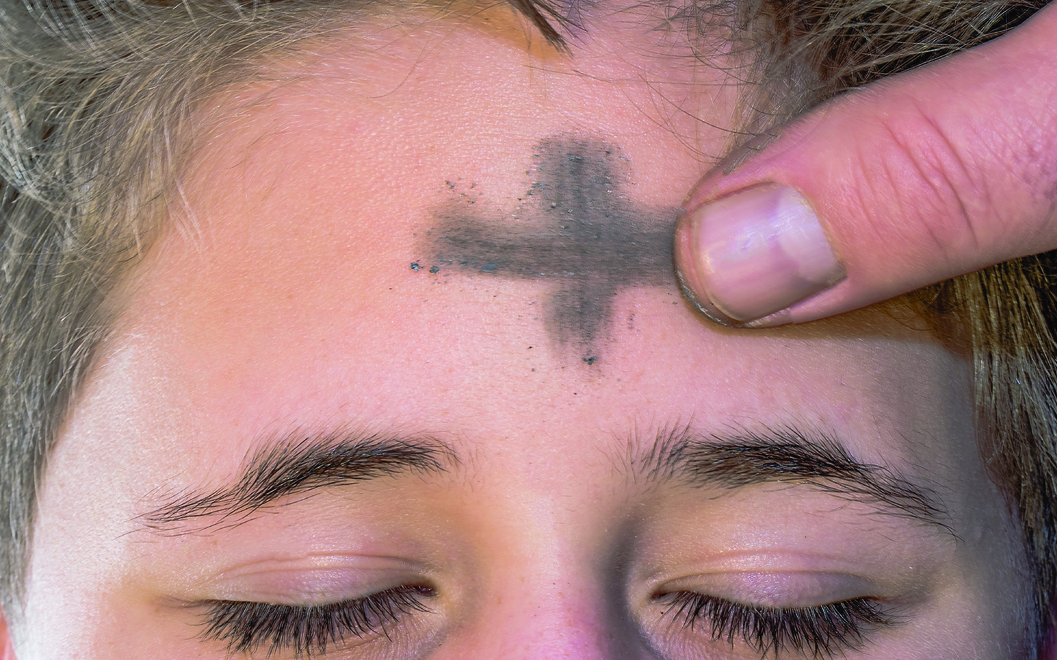Bishop’s Appeal: Education for the Central Conferences
This year, Northern Illinois United Methodists will be donating to one Bishop’s Appeal for two worthy recipients. The appeal for Education for the Central Conferences wi…
It was his big smile that caught my attention at first.

There were all kinds of facial expressions that I saw when I imposed ashes out in the streets of Chicago for Ash Wednesday. Probably one of the most common is what I consider the Solemn Look. A person would approach me to receive ashes and could sense that this was a holy moment. They closed their eyes and intently listened as I pressed my pinkie onto their forehead, making the shape of the cross and using my favorite liturgy for this day, lyrics to the Mumford and Sons song, “Awake My Soul”: “In these bodies we shall live/in these bodies we shall die/And where you invest your love, you invest your life.” After I finished the imposition and told them to have a blessed Lent, they opened their eyes, thanked me and continued on with their Solemn Look.
But not one particular man. He came up to me with that big smile. He didn’t say anything to me, but just walked up, took off his orange stocking hat and looked at me expectantly.
But I hesitated. Not because of his smile or that I have something against orange hats, but I noticed . . . he already had an ash cross on his forehead. I froze for a moment and quickly tried to remember if I’d ever learned anything in seminary about whether there was something verboten about ashing someone twice.
By this time, I wouldn’t have been surprised if the man was getting impatient with my hesitation, but he continued to wait patiently with a smile. I decided to err on the side of grace and added to his ash cross with my own. Again, without saying anything, he put his cap back on, nodded at me and went on with his day. He’d been double ashed. Blessed twice. And I found myself a bit envious of him.
It takes a certain amount of vulnerability, I think, to admit wanting to get ashed again. I’m not sure why he felt the need to go through this informal liturgy more than once. Did he consider himself particularly sinful? Maybe he just needed the reminder of his humanity and God’s active presence through his humanity and the humanity of others. If so, we all could use that reminder and rekindle the yearning for whatever grace God shares with us.
It is these kinds of grace moments that I remember the most when reflecting on the many Ash Wednesdays where we would stand in the cold and offer “street ashings” to anyone who wanted to them. Ash Wednesday is on March 5 this year and I hope your church is making plans to go out of your buildings and into your communities on this day and throughout Lent to be public symbols of grace, offering God’s love at no cost and without questions, including for those who need a double ashing. Which is probably something we all need, too.
(This story appears in Rev. Coon’s book Evangelizing Christians for the Journey)
This year, Northern Illinois United Methodists will be donating to one Bishop’s Appeal for two worthy recipients. The appeal for Education for the Central Conferences wi…
Rev. Donna Atkinson, a retired member of the Northern Illinois Conference, passed away on January 24, 2026.
Thank you for your commitment to sharing your gifts for the good of our United Methodist Church and its ministries. In 2025, you gave $5,056,797—80 percent of our budgeted…
The Northern Illinois Annual Conference, with United Methodist Communications, is excited to launch the #BeUMC Awards! Celebrate laypeople, clergy, and congregations who love boldly, serve joyfully…